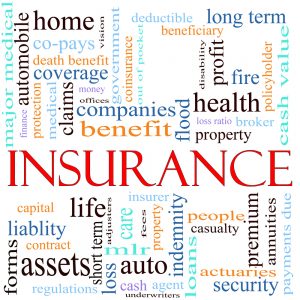Top Reasons to Get Short-Term Insurance Plan Over Nothing
 With the rising costs of insurance premiums, you may be tempted to believe that you can skate for a while without medical insurance. Perhaps you are between policies or between jobs. Why not take a breather from an insurance payment? Just a month or a year saves you dollars.
With the rising costs of insurance premiums, you may be tempted to believe that you can skate for a while without medical insurance. Perhaps you are between policies or between jobs. Why not take a breather from an insurance payment? Just a month or a year saves you dollars.
After all, the premiums for both short-term insurance and its long-term counterpart run high. But, do the savings of not paying premiums outweigh the risk of not holding insurance? You may find that a short-term insurance plan proves better than no coverage at all. Let’s consider the reasons why.
TOP REASONS FOR SHORT-TERM INSURANCE OVER NOTHING
Unexpected Medical Expenses Defrayed
Likely, the primary question weighing on your mind is “what if something happens?” The risk of injury and illness proves valid. The resulting medical costs threaten to bury families, even with insurance. In 2014, 40 percent of Americans struggled with medical debt.
In fact, medical debt ranks as the number one cause of bankruptcy. This honor visits the insured and the uninsured. However, the debt load decreases for those with insurance, even those with a short-term policy.
While short-term insurance does not cover pre-existing conditions, it helps defray the costs of unexpected illness and injury. Even the caps on such services fail to negate the fact that a percentage of the bill gets paid — at least something gets covered.
While in between insurance policies, you may experience:
— Work Injuries
Frontline reports that on-the-job injuries are common. In fact, workplace injury rates are higher than being at home. Ill or injured workers (and their families) assume 44 percent of their medical costs from such injuries. Workers Compensation and insurance cover only part of the bill. Plus, this figure does not account for lost wages. The average time off work for falls on the job adds up to 38 days.
— Auto Accident Injuries
Auto accidents send over two million Americans to the hospital yearly, as reported by the Centers for Disease Control and Prevention (CDC). Falls account for greater than 800,000 hospitalizations each year, by CDC figures. Emergency rooms cost anywhere from $150 to $3,000 or more per visit. Insurance cuts these costs by 10 to 50 percent of the total. Without the help of insurance, this bill often haunts the injured long after the accident.
— Food Poisoning and the Flu
Over 400,000 people land in the hospital due to food poisoning. The flu results in 31.4 million outpatient visits and 200,000 hospitalizations, according to the CDC. Treatment costs vary depending on the need for or length of a hospital stay. However, the average cost per case rings in at more than $14,000.
— Heart Attacks and Strokes
The out-of-pocket cost of a heart attack can top over $9,000. With a recovery of two weeks to three months, decreased income adds to the expense. Strokes occur every 40 seconds and cost about the same out of pocket. If these issues do not arise from a pre-existing condition, a short-term insurance policy may work to your benefit.
Avoidance of Care
Reality indicates that people without insurance tend to refuse care. The uninsured represent 4.7 percent of hospital stays. This figure falls well below the 30.6 percent of people with private insurance, 22.6 percent paying with Medicaid and 39 percent with Medicare. No savings proves worth your family’s health. Short-term insurance offers some peace of mind should you need to seek care.
Affordable Premiums
While some short-term insurance premiums run high, shopping around helps find a policy within your budget. And, these monthly payments run lower than ACA-approved, long-term policies. An experienced insurance agent offers you an ally in making sense of your options. These professionals help weigh the premium, deductible, coverage and other factors to find the best fit for your situation.
Freedom to Change Your Mind
You also receive peace of mind knowing that short-term insurance requires less hassle to attain. (Although, you also may get denied.) Furthermore, cancelling your policy is simple. You opt out should you decide the payments are too much. Or, your situation may change allowing you to choose another policy, even an ACA-approved one.
SITUATIONS TO CONSIDER SHORT-TERM INSURANCE
While short-term policies offer bare-bones coverage, they are worth a look. Several situations arise for you to consider a gap policy as opposed to no insurance at all. Perhaps you:
— Missed the deadline for ACA long-term insurance
— Lost your employment and insurance coverage
— Are in an insurance waiting period
— Cannot afford ACA long-term coverage
— Are waiting on Medicare eligibility
In any case, a reputable insurance firm weighs the costs and benefits with you. Doing your research and considering your options allows you to make a wise financial and medical decision. Doing it today protects you before illness or injury hit.
Thank you for reading our blog! How can we help you? Contact us today.
Category: Health Insurance
Last updated on February 2nd, 2018